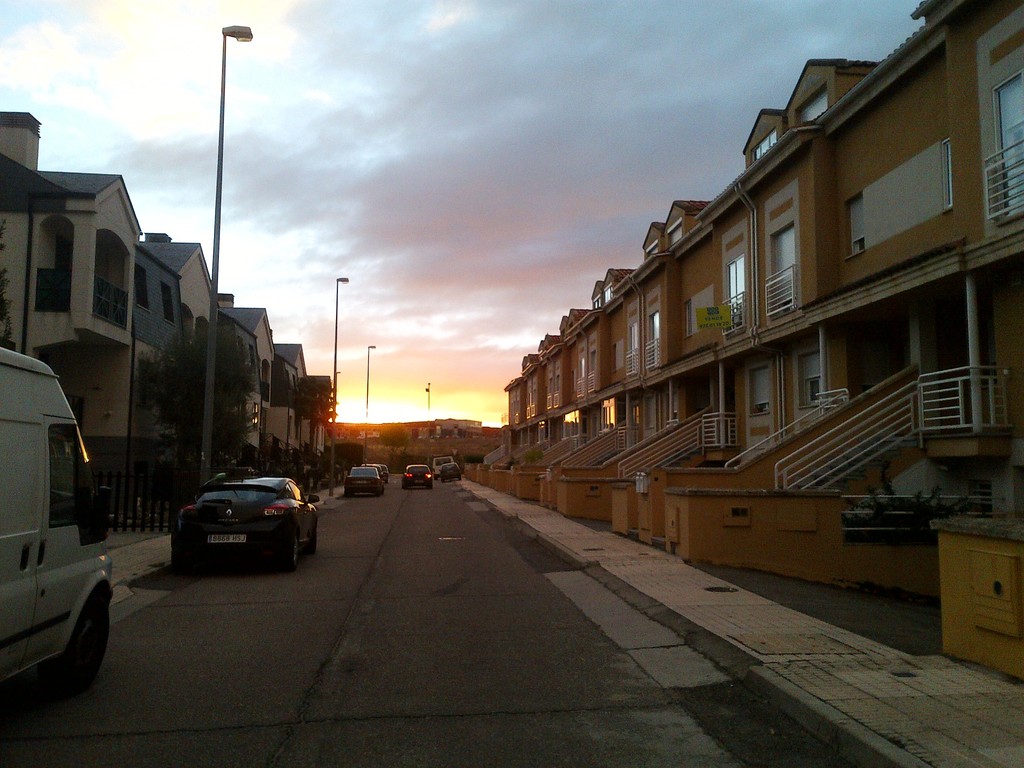How shocking is the Spanish culture?
I believe that no matter how much you travel between countries throughout your life (and I am talking about living in that given country for a while), you will not be able to avoid experiencing culture shock to a lesser or higher extent.
The difficulties of adapting to a different culture might originate from tiny indiscernible things, but might as well be the manifestation of a completely disparate way of thinking or a set of social norms that you will just never be able to understand and learn. Obviously though, the more you have encountered the experience, the more able you will be to realize what you are facing and hopefully, the easier it becomes to resolve the problem.

What do you need to know about culture shock?
It is needed to be explained that culture shock is a much broader concept than what the everyday usage of the expression suggests. You do not have to be literally shocked by the culture in order to experience it.
According to the studies and theories dealing with the phenomenon – and I know this because I studied the subject in university – the definition incorporates such things as differences in the verbal and nonverbal communication, in the rules and norms of the given culture, in the way of perceiving the reality; but a sign of culture shock could also be an identity crises based on the fact that we have to redefine who we are when we live in an unfamiliar social environment, and last but not least it is also said that expatriates tend to have more diseases, which could be interpreted as our body’s way of telling us that something is not quite right.
What I am just trying to demonstrate here with this little lecture is that everyone lives the experience of culture shock in a different mode and on a different level. We do not even have to be aware of it, but that does not mean that it is not there.

My own experience – Hungarian culture vs. Spanish culture
Even if during the past few years I have become quite an expert on the topic – in practice and in theory equally – I am no exception either. For sure I have to say that in general, the Spanish culture is a very good recipient culture for a Hungarian, because there are not many salient differences. And if there are, they are usually (not always though) better ways of doing things than in Hungary. For example, the people are friendlier, more positive and easy-going or that the streets, buses, public places are cleaner. However, I can still mention some aspects that I find (or found at the beginning) a little bit difficult to get used to. From this point onwards, I will only be telling you my subjective opinion:
- The eating habits
- The invisible time shift
- The mañana lifestyle
- The intonation
1. The eating habits
This might sound totally ridiculous, but it took a long while for my stomach to adapt to the Spanish eating habits. Don’t get me wrong, I love the Spanish cuisine! But they have a different “eating timetable” that does not fit into my own, individual one, neither corresponds to the well-known proverb: “reggelizz úgy, mint egy király, ebédelj úgy mint egy polgár és vacsorázz úgy, mint egy koldus”. The translation would be something like: “have breakfast like a king, lunch like a prince and dinner like a pauper”. According to this, breakfast should be the most important meal of the day, because a high energy input is required for all the mental and physical activities throughout the day. (Of course, that is another question how many people actually (can) follow this. ). As for me, since I always wake up starving in the morning, if my time allows it, there is no way I would skip my favourite meal.
In Spain, the most important meal is definitely lunch, which happens sometime between 2-4 o’clock. When Spaniards arrive to the siesta, time seems to stop pretty much: those families who can, prefer to return to their homes to gather around the table and enjoy their meal together – like a symbol of the family life. I think, this is actually very positive and desirable from a healthy work vs. family life balance point of view, but it took my stomach quite a while to get used to the lighter breakfast and late lunch. (Of course, I have the freedom to keep my own habits, but I am living with a Spanish family and so I am trying to adapt. ) In addition, in Spain dinner also represents a social event: people like to hang out in tapas bars while chatting with their family or friends. This also occurs later in the evening than what I am usually used to, and I remember not feeling that well on my very first days when I had abundant dinner after 9-10.
2. The invisible time shift
In Spain, I always have that strange feeling that everything happens a little bit later then it should be. People wake up later, eat later, go to party later, go to sleep later and even the TV programmes (like the evening news or quiz shows) start and finish later then they do in Hungary. This topic was actually brought up in class, and my Spanish teacher gave a very interesting explanation: life in Spain is basically determined by the light. The sun comes up considerably late (today at 08:33), but the daylight lasts for a long time even in the winter (today’s sunset is at 18:20). There is another very interesting fact: Spain belongs to the same time zone as Hungary, however its “natural” time zone would be the Greenwich Mean Time. This could be the real explanation to the relatively unusual time schedule in Spain.

3. The mañana lifestyle
There is a stereotype about Spaniards that holds that they are always late. Well, this statement in itself, without further explanation, is definitely incorrect. It is true that they CAN be late – just like every single one of us, – but when something is really important, they will be there on time.
Based on my experience, I would approach this question from another angle: it is like as if many Spanish people had a different notion about time. It might not be as important for them in many situations as it is in in my life for example. Most people who I know like to have better control over time, to plan in advance. This is often different for the Spanish people that I have met so far. A 10-minute-long delay is not considered so much as being late than a normal part of life. Often they do not even realize when it happens. As if our perception about time was different.
To sum up, they just do not like to be in a rush. It is ok when something does not happen as planned. It is ok to leave for a trip in the afternoon. Because the city that you want to visit won’t go anywhere. Or it is ok if you just leave the whole thing for tomorrow. Because there is always a tomorrow… If I think about it, it does not even sound that bad!
4. Intonation
Similarly to Italians, Spanish people also like to play with the intonation of their words and sentences. Usually I consider this very cool and entertainig and it makes me smile. It gives me positive energy. But sometimes it can also be too much. Too loud. The Hungarian language is much calmer and monotonous. Sometimes I feel I just need a little silence around me.
To conclude this post, I find it really important to highlight that I am just one Hungarian. And everything that I wrote is based on a non-representative sample. It is absolutely my own experience and opinion. I did not intend to offend anyone, especially because I really like Spain and the Spanish people.
One more thing.
It was the social psychologist Peter Adler who said: “the study of intercultural communication begins as a journey into another culture and ends as a journey into one’s own culture. ” I think this quote grasps very well what is going on in the mind and heart of an expat or an Erasmus student far away from home. By identifying the cultural differences, we gain awareness not only of the recipient culture but of our own too. I have learnt a lot about myself and about my culture through learning about the Scottish or the Spanish culture.

Photo gallery
Content available in other languages
Want to have your own Erasmus blog?
If you are experiencing living abroad, you're an avid traveller or want to promote the city where you live... create your own blog and share your adventures!
I want to create my Erasmus blog! →







Comments (0 comments)